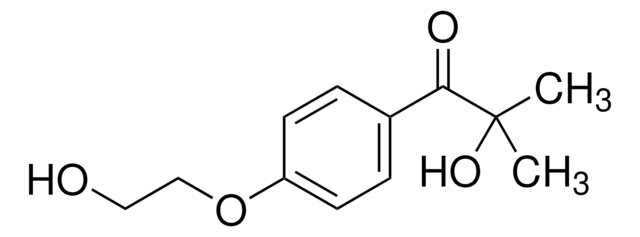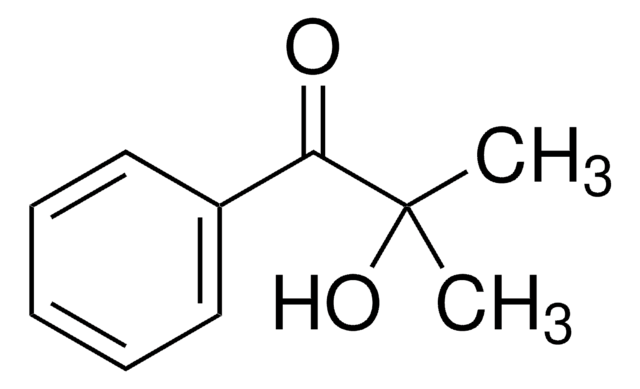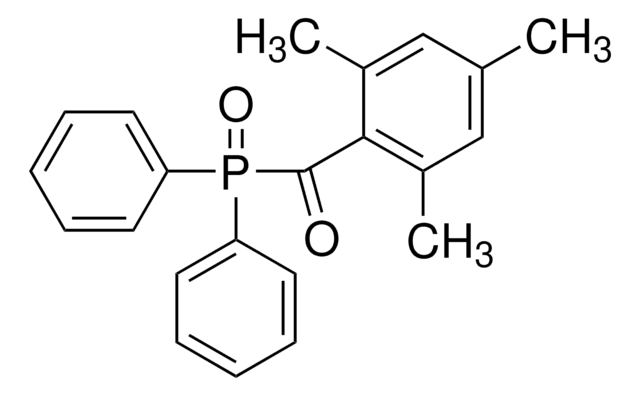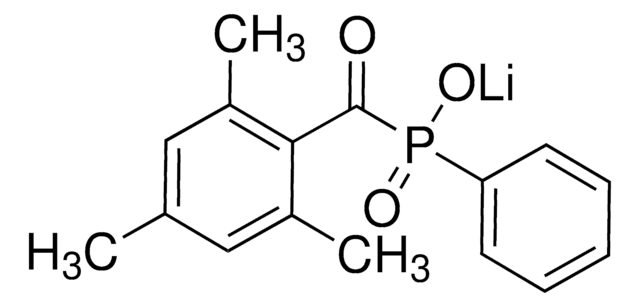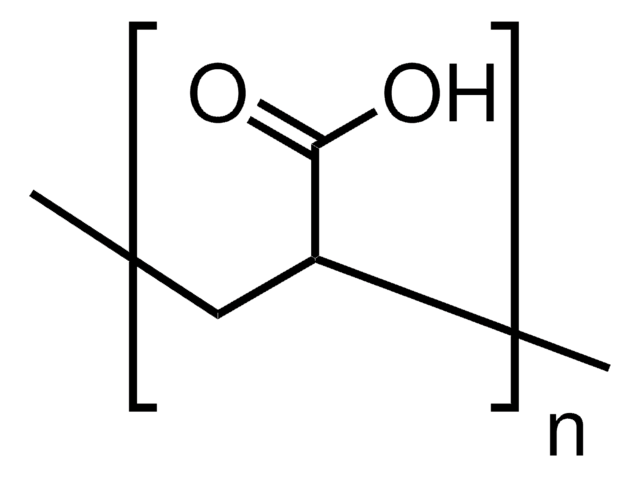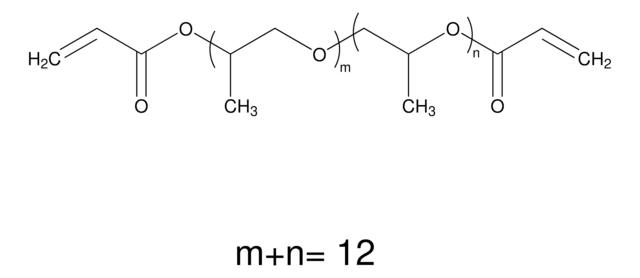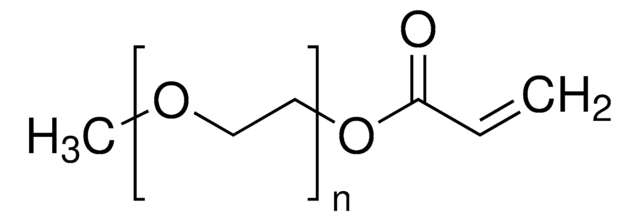437441
Poly(ethylene glycol) diacrylate
average MN 575, cross-linking reagent polymerization reactions, acrylate, 400-600 ppm MEHQ as inhibitor
Synonym(s):
Polyethylene glycol, PEG diacrylate
About This Item
Recommended Products
product name
Poly(ethylene glycol) diacrylate, average Mn 575
form
liquid
Quality Level
mol wt
average Mn 575
contains
400-600 ppm MEHQ as inhibitor
reaction suitability
reagent type: cross-linking reagent
reaction type: Polymerization Reactions
refractive index
n20/D 1.467
viscosity
57 cP(25 °C)(lit.)
solubility
H2O: soluble
density
1.12 g/mL at 25 °C
Ω-end
acrylate
α-end
acrylate
polymer architecture
shape: linear
functionality: homobifunctional
storage temp.
2-8°C
SMILES string
OCCO.OC(=O)C=C
InChI
1S/C8H10O4/c1-3-7(9)11-5-6-12-8(10)4-2/h3-4H,1-2,5-6H2
InChI key
KUDUQBURMYMBIJ-UHFFFAOYSA-N
Looking for similar products? Visit Product Comparison Guide
Related Categories
Application
Features and Benefits
related product
Signal Word
Danger
Hazard Statements
Precautionary Statements
Hazard Classifications
Eye Dam. 1 - Skin Irrit. 2 - Skin Sens. 1
Storage Class Code
10 - Combustible liquids
WGK
WGK 1
Flash Point(F)
219.2 °F
Flash Point(C)
104 °C
Personal Protective Equipment
Choose from one of the most recent versions:
Already Own This Product?
Find documentation for the products that you have recently purchased in the Document Library.
Customers Also Viewed
Articles
Scientists at Sigma-Aldrich® routinely determine number-average molecular weight (Mn) by 1H NMR end-group analysis for polymers having Mn values under 3,000.
In this article, we will discuss the benefits and limitations of several 2D and 3D scaffold patterning techniques that can be applied in the presence of cells. Although these methods will be discussed in the context of poly(ethylene glycol) (PEG)-based hydrogels, they can technically be applied to any optically transparent, photoactive substrate.
Protocols
We presents an article regarding Polymer Analysis by NMR.
Our team of scientists has experience in all areas of research including Life Science, Material Science, Chemical Synthesis, Chromatography, Analytical and many others.
Contact Technical Service
